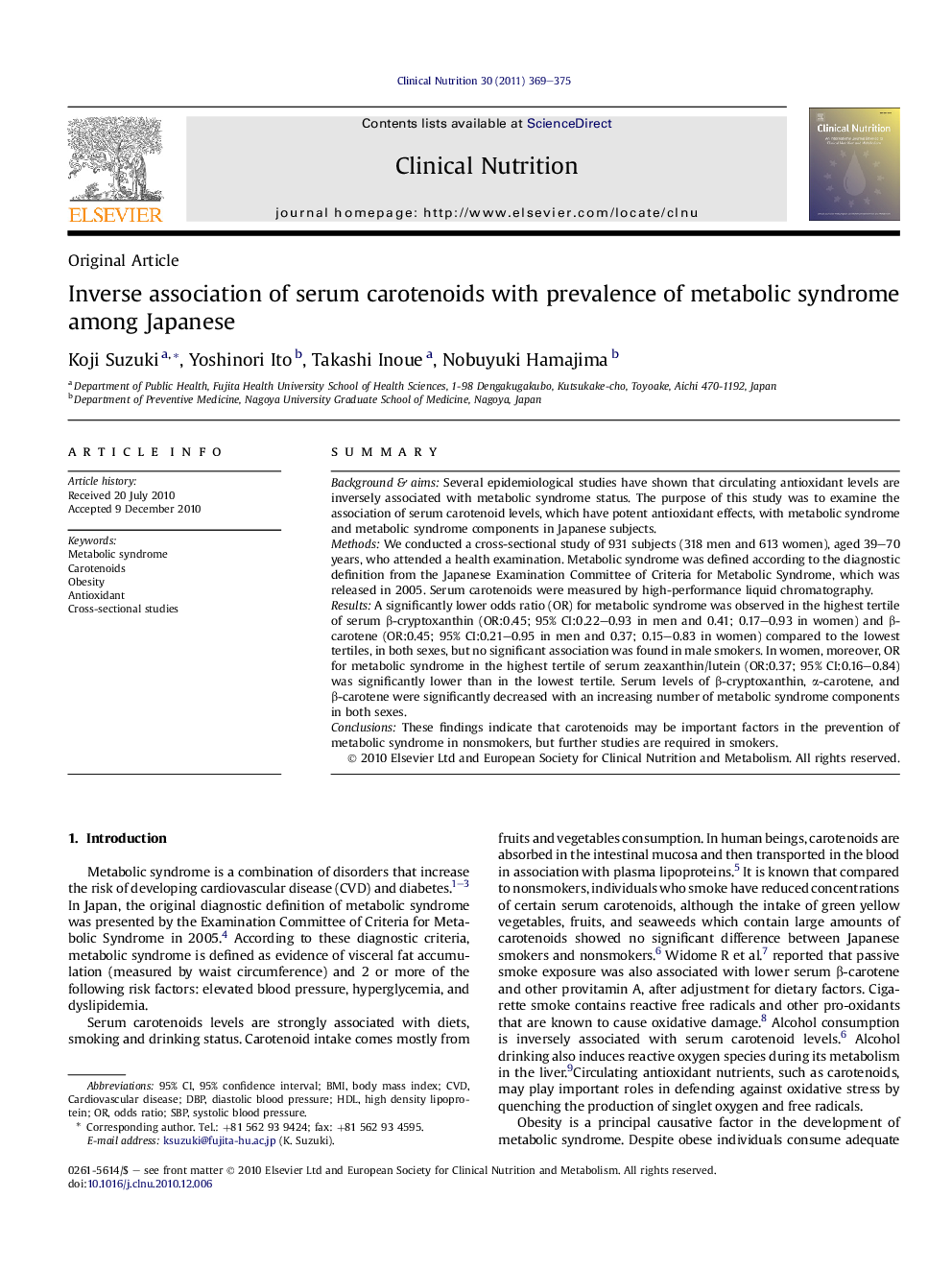| کد مقاله | کد نشریه | سال انتشار | مقاله انگلیسی | نسخه تمام متن |
|---|---|---|---|---|
| 2689832 | 1143229 | 2011 | 7 صفحه PDF | دانلود رایگان |
SummaryBackground & aimsSeveral epidemiological studies have shown that circulating antioxidant levels are inversely associated with metabolic syndrome status. The purpose of this study was to examine the association of serum carotenoid levels, which have potent antioxidant effects, with metabolic syndrome and metabolic syndrome components in Japanese subjects.MethodsWe conducted a cross-sectional study of 931 subjects (318 men and 613 women), aged 39–70 years, who attended a health examination. Metabolic syndrome was defined according to the diagnostic definition from the Japanese Examination Committee of Criteria for Metabolic Syndrome, which was released in 2005. Serum carotenoids were measured by high-performance liquid chromatography.ResultsA significantly lower odds ratio (OR) for metabolic syndrome was observed in the highest tertile of serum β-cryptoxanthin (OR:0.45; 95% CI:0.22–0.93 in men and 0.41; 0.17–0.93 in women) and β-carotene (OR:0.45; 95% CI:0.21–0.95 in men and 0.37; 0.15–0.83 in women) compared to the lowest tertiles, in both sexes, but no significant association was found in male smokers. In women, moreover, OR for metabolic syndrome in the highest tertile of serum zeaxanthin/lutein (OR:0.37; 95% CI:0.16–0.84) was significantly lower than in the lowest tertile. Serum levels of β-cryptoxanthin, α-carotene, and β-carotene were significantly decreased with an increasing number of metabolic syndrome components in both sexes.ConclusionsThese findings indicate that carotenoids may be important factors in the prevention of metabolic syndrome in nonsmokers, but further studies are required in smokers.
Journal: Clinical Nutrition - Volume 30, Issue 3, June 2011, Pages 369–375
